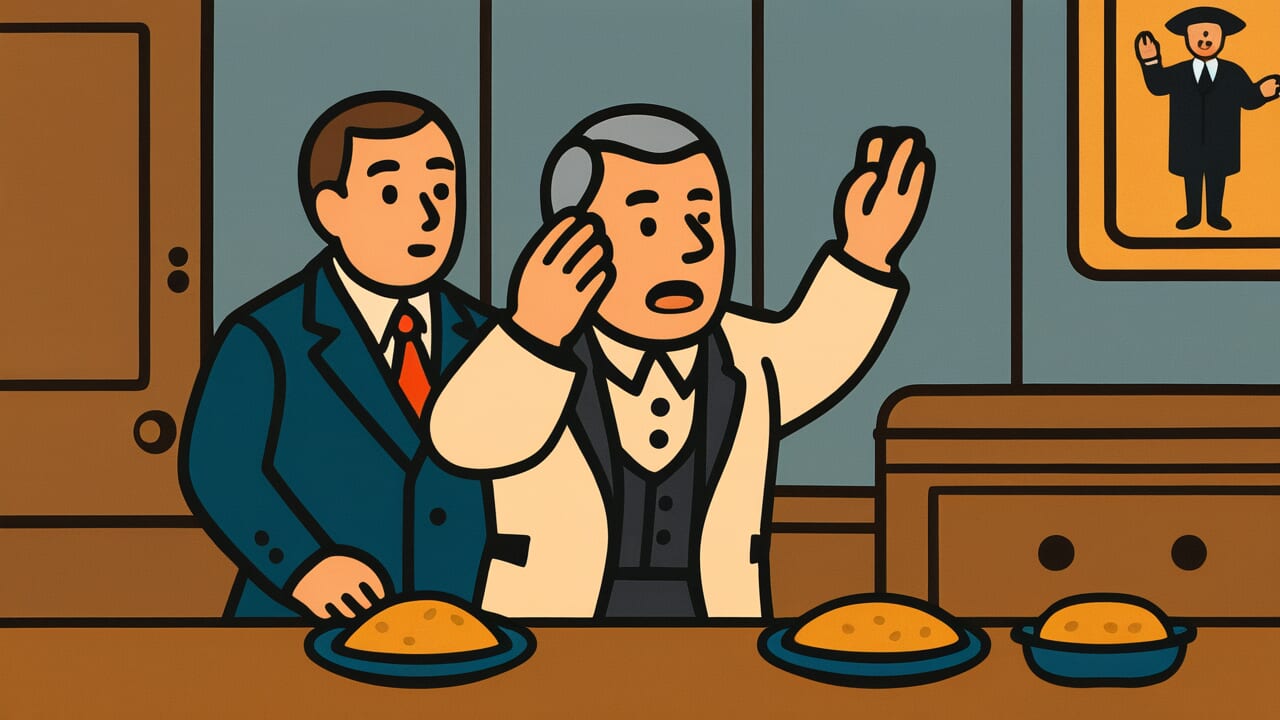How to Read “Even the Emperor cannot stand without eating”
Dairisama mo kuwanya tatanu
Meaning of “Even the Emperor cannot stand without eating”
This proverb shows the basic equality of all humans. No matter how high someone’s social status or how important they are, they cannot survive without eating.
By using the Emperor as an example, the proverb makes a powerful point. The Emperor held the highest position in Japanese society. Yet even this supreme figure cannot escape the basic human need for food.
People use this saying when they want to remind others that fundamental human conditions are the same for everyone. It teaches that we don’t need to treat important people as completely different from ourselves. Similarly, we shouldn’t look down on ourselves either.
In modern times, this proverb reminds us of an important truth. Even when there are differences in social status or wealth, all humans are equal at the most basic level. What we need to survive is the same for everyone.
This is a simple but powerful message about human equality.
Origin and Etymology
No clear written records explain exactly when this proverb first appeared. However, we can learn a lot by looking at how the phrase is constructed.
“Dairisama” is a respectful term for the Emperor. “Dairi” refers to the Imperial Palace where the Emperor lived. The word came to represent the highest social position in Japan.
Throughout Japanese history, people viewed the Emperor as a sacred being. They saw the Emperor as completely separate from ordinary people.
“Kuwanya tatanu” means “cannot stand without eating.” The word “nya” is a dialectal way of saying “if not.” This gives the phrase a familiar, down-to-earth feeling.
This proverb likely emerged during times when social classes were strictly separated. People created this saying to express a truth about human equality. No matter how noble someone’s birth, they cannot escape basic physical needs.
By choosing the Emperor as the example, the proverb makes its point as strongly as possible. If even the Emperor must eat, then truly everyone must.
This represents the wisdom of common people. They could see past surface differences in status to understand the essential nature of being human.
Usage Examples
- Even the company president follows “Even the Emperor cannot stand without eating” by eating three proper meals every day, so we should also value the basics
- As the saying “Even the Emperor cannot stand without eating” shows, no matter how important someone is, we all live under the same conditions as humans
Universal Wisdom
This proverb has survived through generations because it captures a fundamental truth about human equality. Every day we face differences in position and role. Boss and employee, teacher and student, parent and child.
Society naturally creates hierarchies. People live while constantly aware of where they stand in these structures.
But this proverb reminds us of something crucial. No matter how much power someone has, no matter how much wealth they’ve built, nobody can escape basic human conditions.
The simple truth is that everyone must eat to survive. Before this fact, the Emperor and the commoner are exactly the same.
This insight makes us think about human dignity. We don’t need to fear important people more than necessary. We also don’t need to view ourselves as inferior.
Why? Because in the act of living, we are fundamentally equal.
Our ancestors understood this truth even in times of strict social classes. They could see past surface differences in status and power. They looked at the essential nature of being human.
This proverb contains wisdom about understanding humanity that works in any era.
When AI Hears This
The human body constantly moves toward disorder. Cells break down, proteins decompose, and body heat escapes to the surroundings. This is the second law of thermodynamics.
It’s an absolute rule of physics that everything becomes chaotic if left alone.
Here’s what matters: being alive means constantly fighting this law to maintain order. For example, to keep body temperature at 36 degrees Celsius when the surroundings are 20 degrees, you must continuously burn energy to create heat.
Repairing cells, moving muscles, thinking with your brain—all of these require energy. An adult male needs about 2000 kilocalories per day, roughly 8400 kilojoules of energy from outside sources. Without this, the order-maintenance system collapses.
Even the Dairisama at the highest social position cannot escape this physical law by even one millimeter. Social status is an order that humans created. But the energy balance needed for life maintenance is determined by the laws of the universe.
In fact, humans with large brains who do complex thinking consume energy more intensely. The brain alone uses 20 percent of all energy.
This proverb shows a fact: artificial hierarchical order becomes completely powerless before the physical requirements of life maintenance. No amount of power can defeat increasing entropy.
Lessons for Today
This proverb gives us a chance to rethink how we measure human value. You might feel down after seeing someone’s glamorous life on social media. You might feel unnecessarily intimidated by differences in workplace positions.
But remember this: everyone eats, sleeps, and lives just like you do, no matter who they are.
This perspective frees you from unnecessary tension in relationships. You can interact with others as fellow humans, regardless of their social position. This doesn’t mean disrespecting them. It means maintaining a healthy sense of equality.
At the same time, this proverb teaches the importance of taking care of yourself. Do you skip meals because you’re busy? Do you cut back on sleep?
No matter how important your work or goals are, you shouldn’t neglect the basic care your body needs. This is a fundamental condition of being human that doesn’t change, even for an Emperor.
Meeting your basic needs isn’t selfish or lazy. It’s your natural right as a human being.



Comments